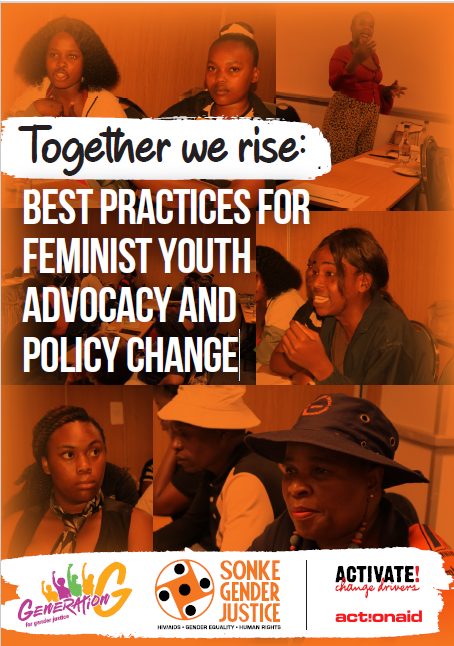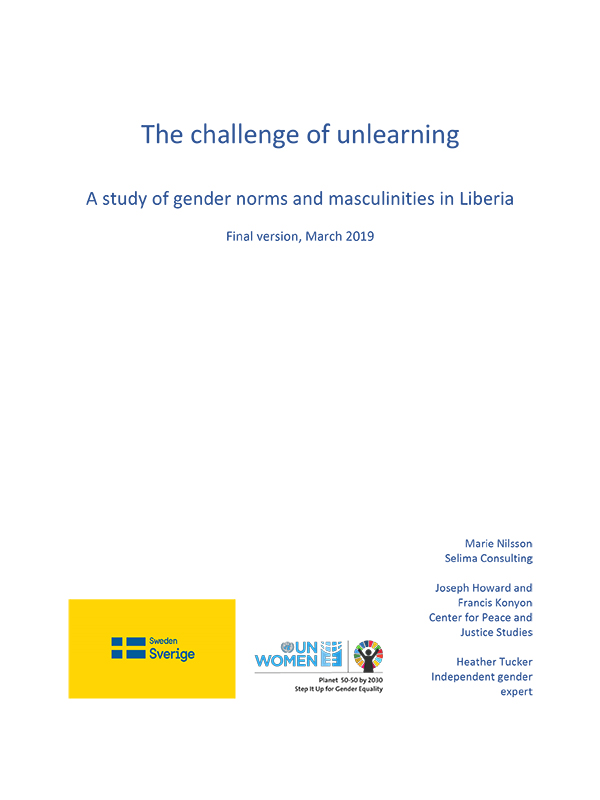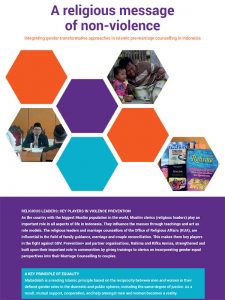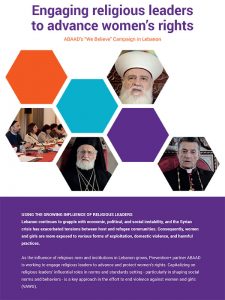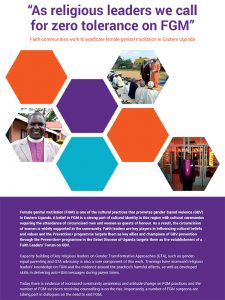This booklet showcases stories that reflect five years of learning about creating sustainable movements for gender justice. It highlights experiences from training sessions in Soweto to council meetings in Johannesburg, and from court victories that reshape national policy to community initiatives that transform everyday life.
Publication Type: Case Studies
-
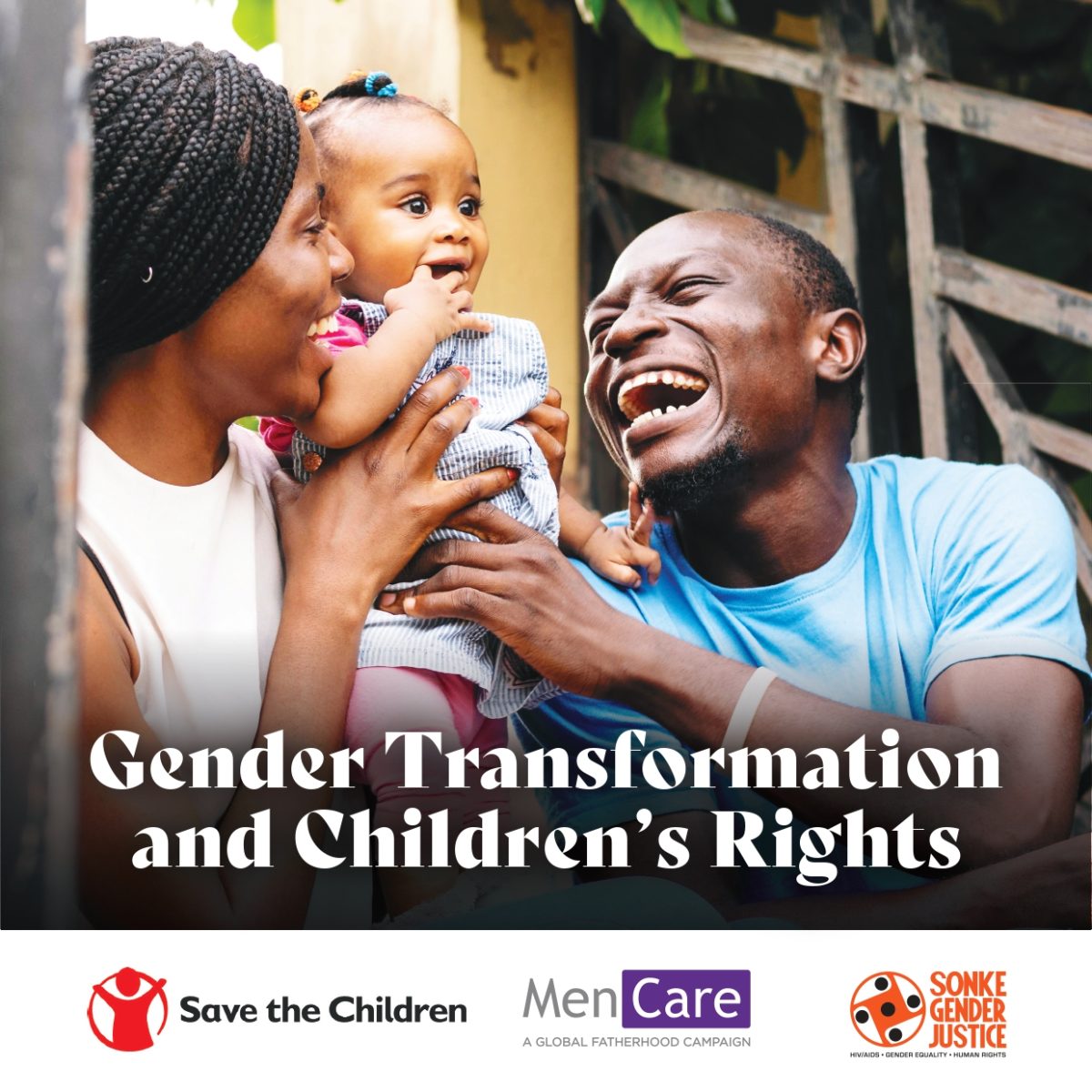
Gender Transformation and Children’s Rights
This brochure was developed by Sonke Gender Justice to support Save the Children International (SCI) with using Gender Transformative Approaches within the Sida Civil Society Organisations (CSOs) Strengthening programme
-
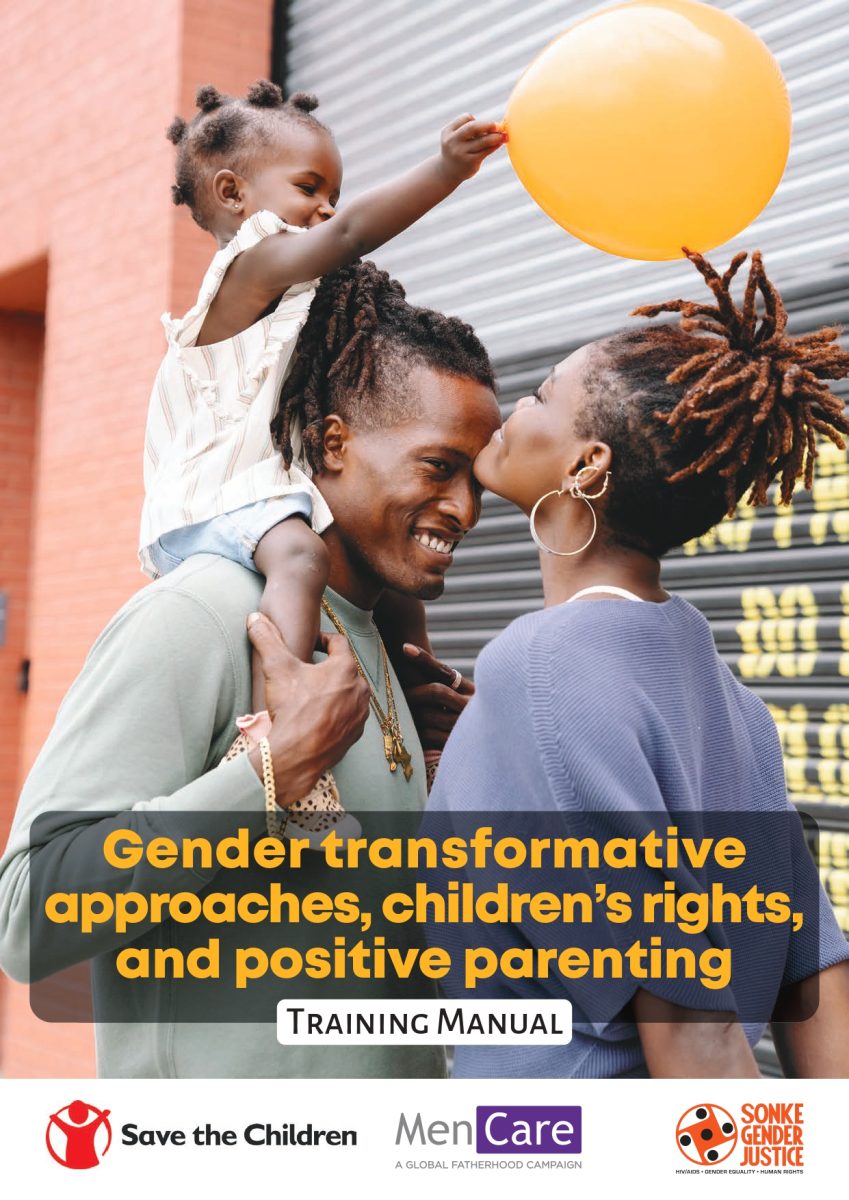
Gender transformative approaches, children’s rights, and positive parenting
This Manual was developed by Sonke Gender Justice to support Save the Children International (SCI) with using Gender Transformative Approaches within the Sida Civil Society Organisations (CSOs) Strengthening programme
-
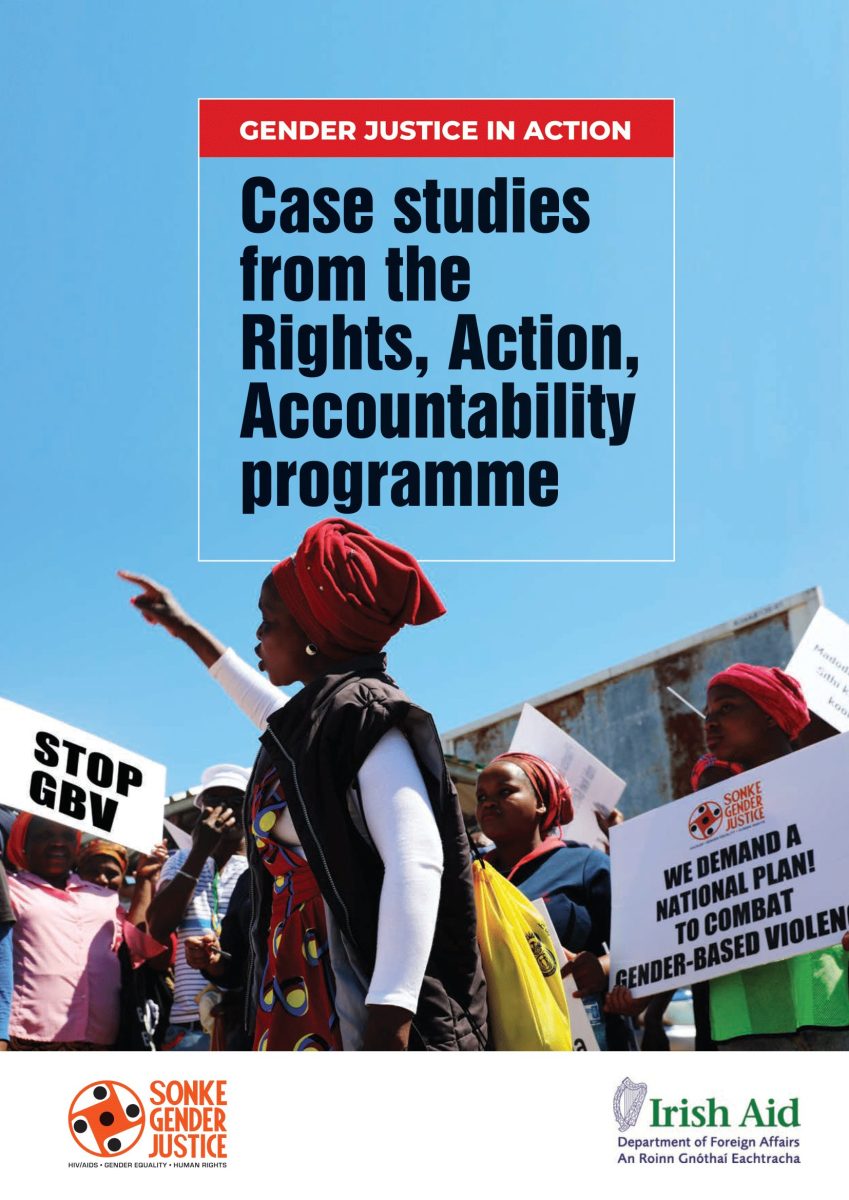
Case studies from the Rights, Action, Accountability programme
Read Sonke’s latest annual report here
Sonke has been following guidance from our government and the WHO by adhering to the COVID-19 precautionary measures, including mandatory working from home across the organization. We apologise upfront for any delays in responding to your emails as we at Sonke are committed to the well being of our staff and fully understand their responsibilities in terms of child care and caring for vulnerable family members and family members affected by Covid-19.
To report an incident of sexual harassment, bullying, abuse or any other form of harassment experienced, seen or heard about, or an incident of fraud, corruption or bribery: CALL the toll-free whistleblower hotline: 0800 333 059, or SMS: 33490, or email: sonke@whistleblowing.co.za
Sonke does not tolerate sexual harassment, bullying, abuse or any other forms of harassment.
-

Desiderata for gender parity
This paper looks at 26 selected companies in Nigeria and explores factors responsible for women’s under-representation at leadership level of these organisations. It also recommends appropriate action to remedy the lack of women leadership.
-
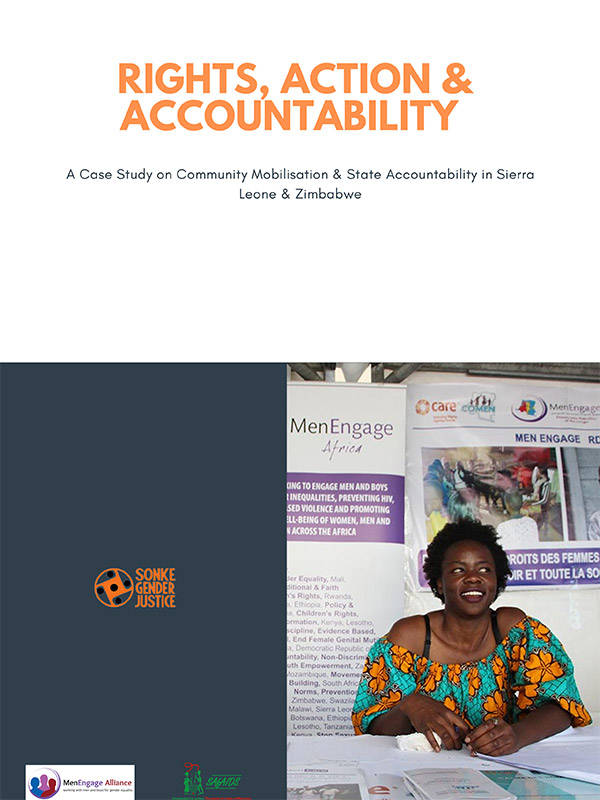
Rights, Action & Accountability
This report outlines the results of research conducted from January 2019 to March 2019 on Sierra Leone and Zimbabwe. The research was conducted on Projects implemented in Freetown and Bo District in Sierra Leon and Matetsi, Zimbabwe. This Country Case Study was conducted as part of an assessment of the effectiveness of Sonke Gender Justices Project “Rights, Action & Accountability: Supporting Community Mobilization and State Accountability for Gender Justice in Africa” in selected implementation areas. The project was first implemented and piloted in the Eastern Cape, where it is running in its second year. Currently, it is running in its first year in Freetown and Bo District in Sierra Leon and Matetis, Sulewi and Matabaland in Zimbabwe with the help of the partner organizations MAGE in Sierra Leone and SafAids in Zimbabwe.
-
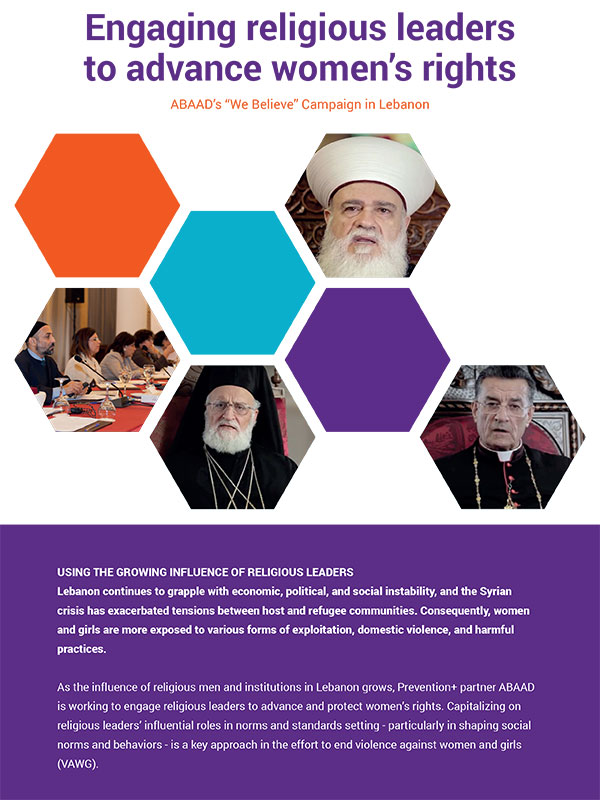
Working with religious communities to end gender-based violence
Around the world, we see an increase in conservatism, leading societies away from human rights, towards more dogmatic beliefs. Women are disproportionately affected by this shift, with limitations to their rights, the reinforcement of the male hierarchy and the marginalisation of sexual and gender diversity. At the same time, the influence of religious leaders in their communities, means they can play key roles in tackling gender-based violence (GBV). Discover how our Prevention+ programme successfully works with these leaders in Indonesia, Lebanon and Uganda.
Indonesia
As the country with the biggest Muslim population in the world, Muslim clerics play an important role in all aspects of life in Indonesia. They influence the masses through teachings and act as role models. The religious leaders and marriage counsellors of the Office of Religious Affairs, are influential in the field of family guidance, and marriage and couple reconciliation. This makes them key players in the fight against GBV. Prevention+ and partner organisations, Rahima and Rifka Annisa, strengthen and build upon their important role in communities by giving trainings to clerics on incorporating gender equal perspectives into their marriage counselling to couples.
Lebanon
Lebanon continues to grapple with economic, political, and social instability, and the Syrian crisis has exacerbated tensions between host and refugee communities. Consequently, women and girls are more exposed to various forms of exploitation, domestic violence, and harmful practices. As the influence of religious men and institutions in Lebanon grows, Prevention+ partner ABAAD is working to engage religious leaders to advance and protect women’s rights. Capitalizing on religious leaders’ influential roles in norms and standards setting – particularly in shaping social norms and behaviours – is a key approach in the effort to end violence against women and girls.
Uganda
Female genital mutilation (FGM) is one of the cultural practices that promotes gender-based violence (GBV) in Eastern Uganda. A belief in FGM is a strong part of cultural identity in this region with cultural ceremonies requiring the attendance of circumcised men and women as guests of honour. As a result, the circumcision of women is widely supported in the community. Faith leaders are key players in influencing cultural beliefs and values and the Prevention+ programme targets them as key allies and champions of GBV prevention. This has led to the almost full eradication of FGM in the area.
-
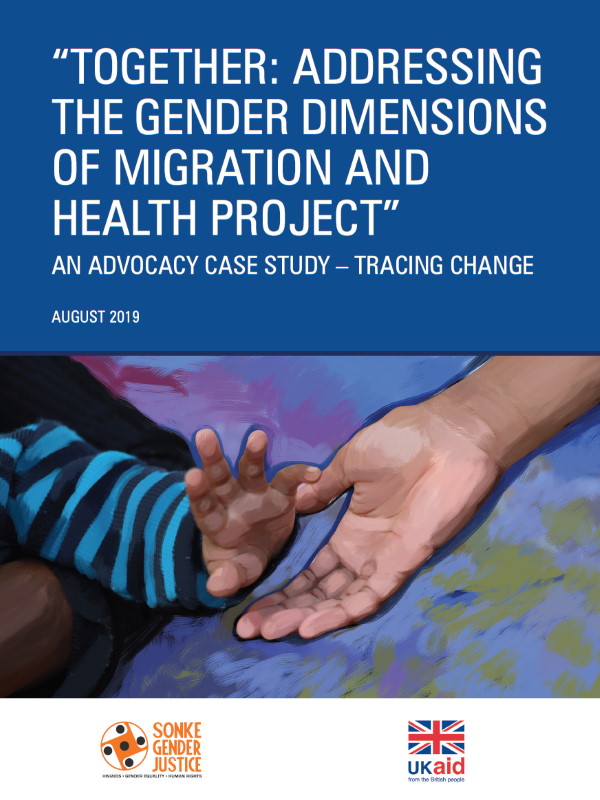
Together: Addressing the Gender Dimensions of Migration and Health
This case study provides a detailed account of the pathway to achieving two key outcomes in the “Together: Addressing the Gender Dimensions of Migration and Health” project implemented by Sonke Gender Justice in collaboration with their civil society partners. The overall aim of the project was to assess and address the gendered vulnerabilities associated with migration in Southern Africa in order to reduce migrant risk of ill-health, discrimination and gender-based violence. The case study is based on an adapted process tracing design, which shortlists a series of evidenced explanations or hypotheses for an outcome and analyses the evidence available to support or disprove the explanations.
-
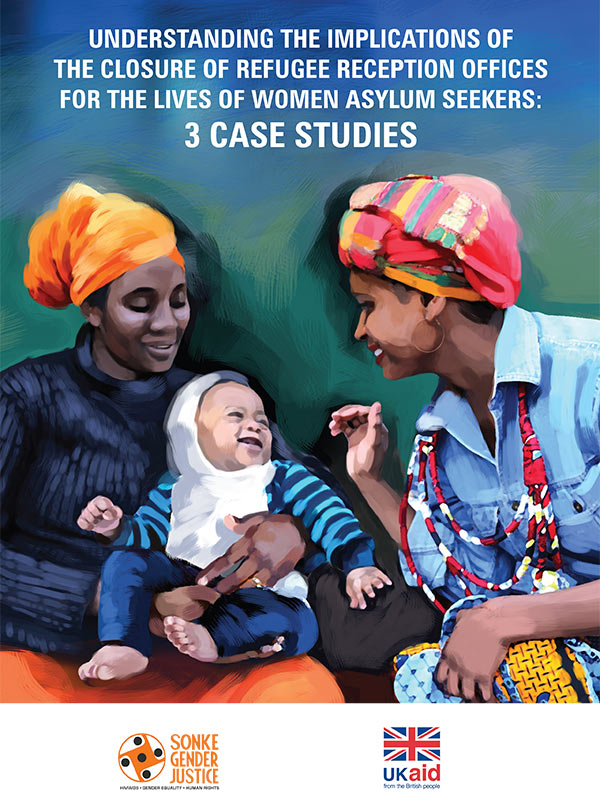
Understanding the implications of the closure of refugee reception offices for the lives of women asylum seekers
This report documents the experiences of five individual refugee women affected by the closure of Refugee Reception Offices (RROs) in several parts of South Africa. Without access to these offices, asylum seekers face challenges regularising their stay, with negative repercussions on their daily lives. The report documents some of these challenges in three case studies along the themes of Motherhood; Health and Wellbeing; and Access to Services.
-
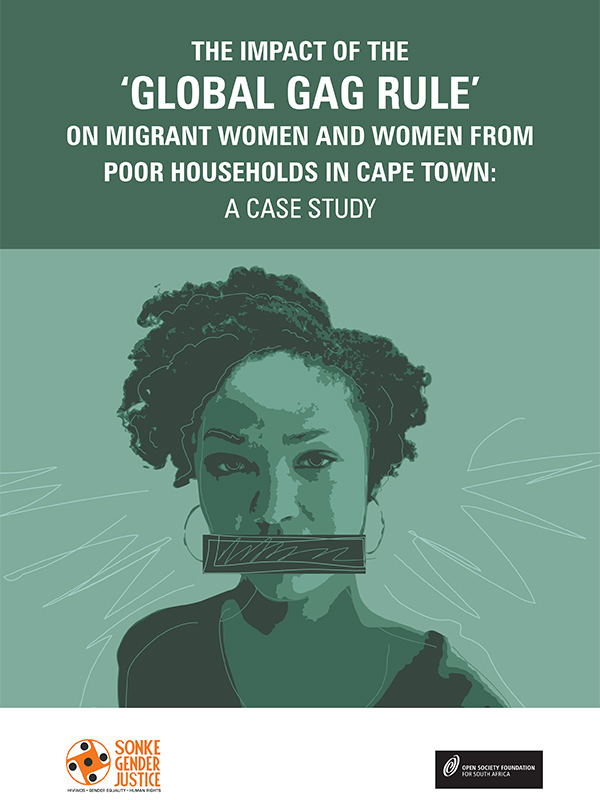
The impact of the ‘Global Gag Rule’ on migrant women and women from poor households in Cape Town
The USA’s ‘Global Gag Rule’, officially called ‘Protecting Life in Global Health Assistance’, was reinstated in 2017 when the Republican administration returned to office. This policy “prohibits US global health assistance from being provided to foreign nongovernmental organisations (NGOs) that perform abortion in cases other than a threat to the life of the woman, rape or incest; provide counselling (including advice or information) and/or referral for abortion; or lobby to make abortion legal or more available in their own country, even if these activities are performed with funding from other, non-US government (USG) sources”.
This case study explores the impact of ideologically-based funding restrictions on a small Cape Town-based NGO working within gender based violence and sexual and reproductive health.
-
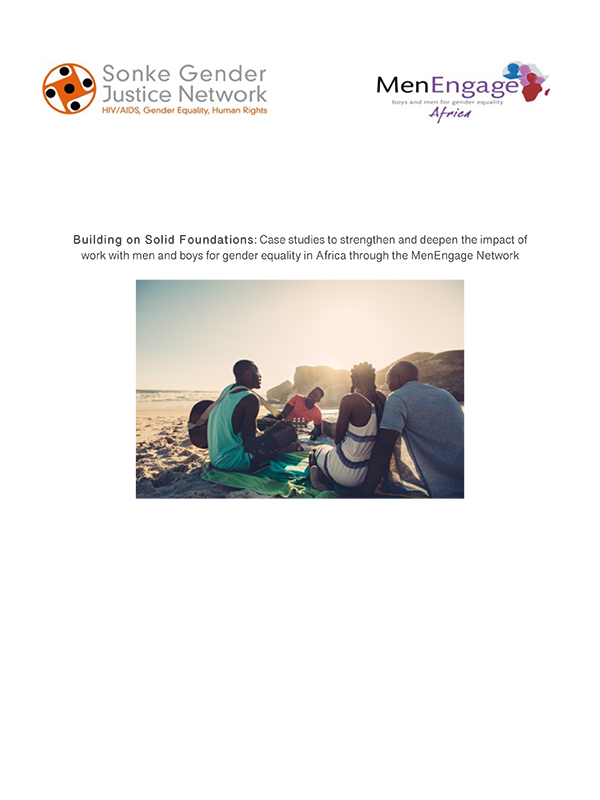
Building on Solid Foundations
In October 2017 Sonke Gender Justice and Men Engage Africa hosted the Five Days of Gender Based Violence Prevention Meeting in South Africa. The purpose of the meeting was to share ideas, exchange promising practices, collect evidence that can strengthen collective advocacy and develop innovative ideas on “mainstreaming” violence prevention.
In preparation for the meeting, Sonke commissioned the identification and documentation of innovative practices on GBV prevention by MenEngage Africa (MEA) partners using the case study methodology. It was agreed the documentation would clearly describe and document the innovative practice, clearly demonstrate why the practices are innovative and make recommendations about how to strengthen the practice.
-
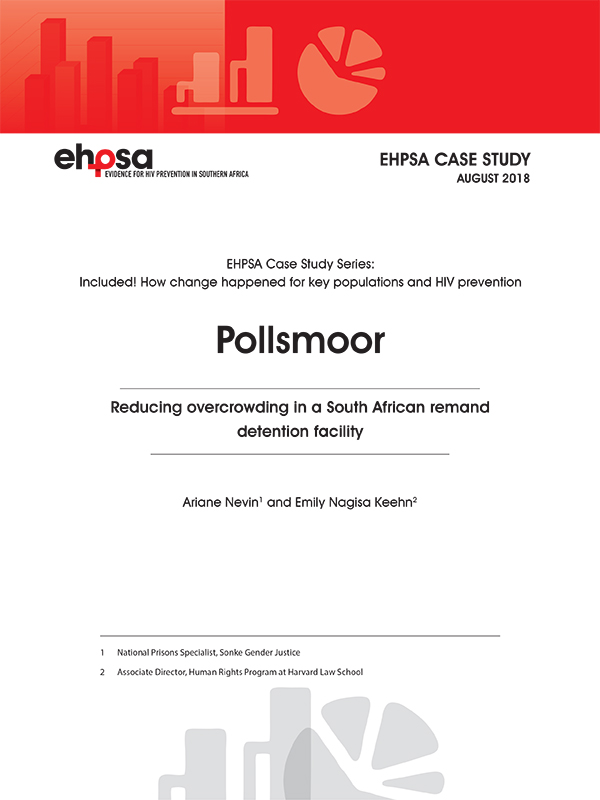
Pollsmoor
This case study examines reform that alleviated severe overcrowding and inhumane conditions in Pollsmoor Male Remand Detention Facility (Pollsmoor Remand), a South African incarceration centre for people awaiting trial and sentencing.
From the early 2000s, Pollsmoor Remand has been operating at more than 200% of its approved capacity, with an average occupancy of more than 4 000 people. In 2015, after years of lobbying to reduce overcrowding and in the face of inertia on the part of policymakers and legislators, civil society escalated its advocacy and mounted a constitutional challenge in the Western Cape High Court with the case, Sonke Gender Justice v. the Government of South Africa. In 2016, the judge ruled against the government and made a historic order to reduce occupancy to 150% of its capacity over a six-month period.
By February 2017, the Department of Correctional Services (DCS) had already taken steps to reduce over- crowding at the facility from 252% to 174%. Although these numbers reflected an unprecedented and substantial drop in the real number of occupants in Pollsmoor Remand, the outcome was not an unqualified success; they reduced occupancy by redistributing the overall population of incarcerated people to facilities across Western Cape Province, not by releasing individuals or sending fewer people to remand detention.
This case study describes the complex change process that enabled this reform and the contributions of different forms of advocacy by key actors.
-
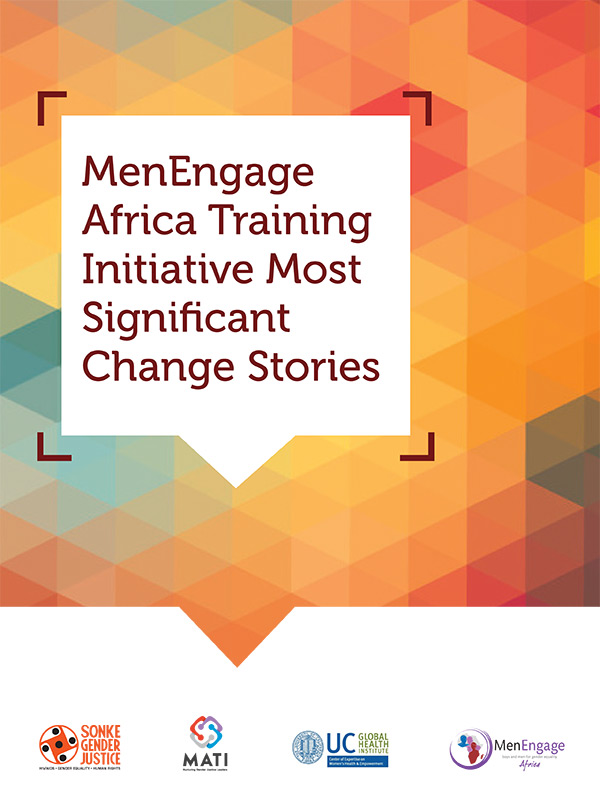
MenEngage Africa Training Initiative Most Significant Change Stories
Under the auspices of MenEngage Africa (MEA), for the past five years Sonke Gender Justice has coordinated the MenEngage Africa Training Initiative (MATI) in partnership with the University of California Global Heath Institute (UCGHI) and the Women’s Health Research Unit of the University of Cape Town (UCT). The intensive 14-day training course aims to contribute to the development of a network of highly skilled and knowledgeable gender justice leaders and advocates on the continent. Using an eclectic approach that incorporates theoretical and practical elements, the policy and advocacy-focused course supports African gender activists to increase their knowledge on gender quality, women’s empowerment and gender norms transformation. Upon completion of the course, MATI participants gain the skills and knowledge to:
- Identify and understand critical issues in women’s health, masculinities and gender inequalities.
- Apply empowerment theory to these issues.
- Design and measure empowerment interventions for health using newly learned strategies.
- Develop and implement a program to address problems in the areas of women’s health and masculinities in the status-quo.
- Network with individuals that are passionate and involved in similar issue areas.
-
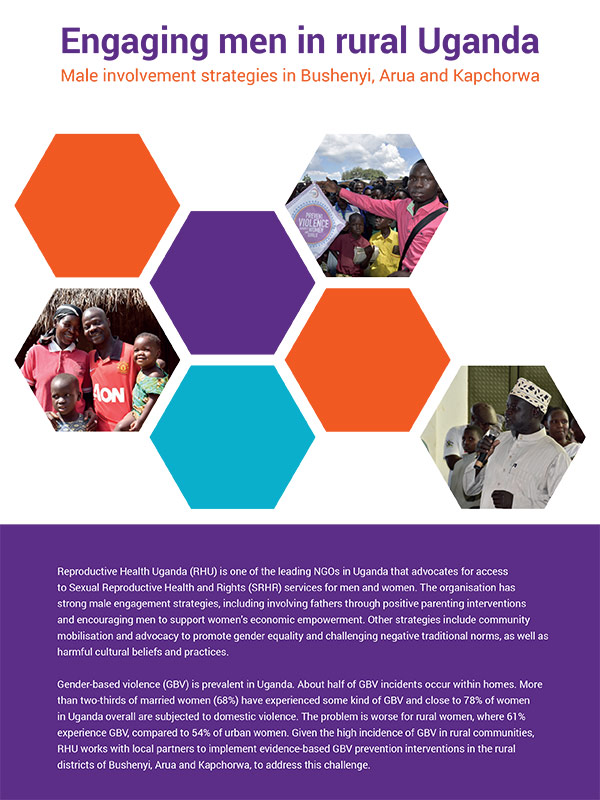
Engaging men in rural Uganda
Over the years, the government of Uganda and other development partners encouraged the formation of women’s groups, called Women in Economic Empowerment (WEE) groups, in order to ease access to financial support, as one way of increasing household income and empowering women. However, this exposure to disposable income has been, to some extent, a contributor to GBV because of the limited involvement of men, as culturally they are expected to take key decisions on family assets and income.
-
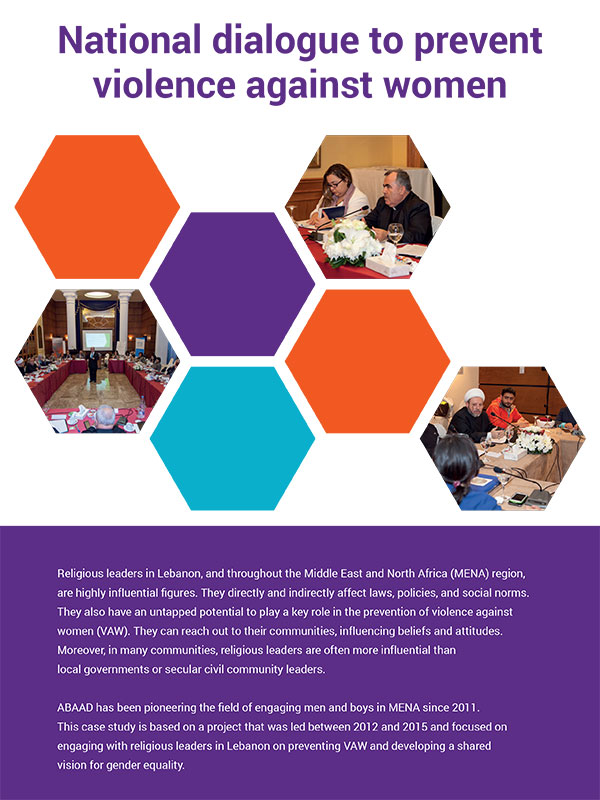
National dialogue to prevent violence against women
As part of this project, ABAAD succeeded in holding seven national dialogue sessions between 10 feminist organisations and six religious leaders, representing various religions and sects in Lebanon, to discuss common ground in ending VAW. The goal of these sessions was to explore both commonalities and differences on the topic could be explored and identified.
-
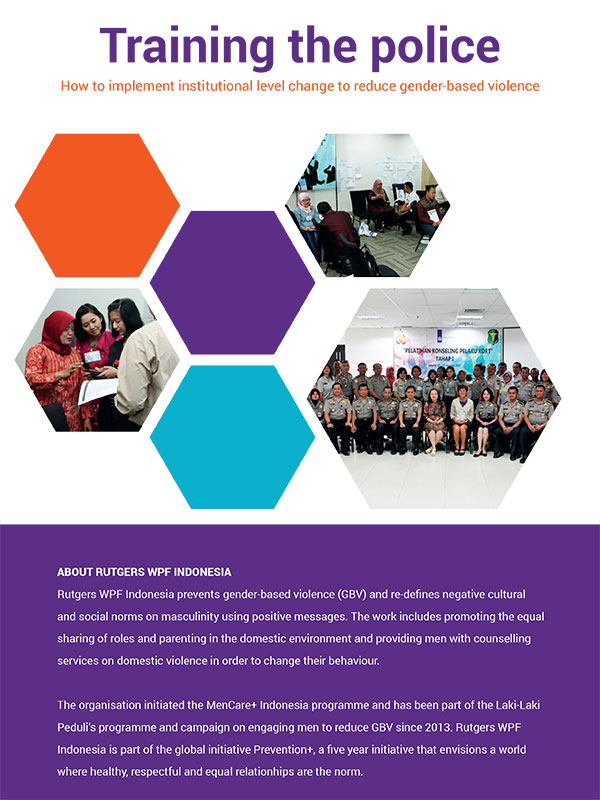
Training the police
In Jakarta, Rutgers WPF Indonesia collaborated with the National Indonesian Police. A total of 75 participants from three training cohorts from different provinces in Indonesia took part. The themes of the trainings included: sex and gender; masculinity; GBV; stages of behavioural changes; basic counselling skills; anger management; sexuality; caregiving; and father’s legacies. The training addressed ground-breaking topics, within the context of the police, and participants shared personal insights. The sessions were formatted in role play, group discussions, exercise and pedagogy methods. These workshops set the basis for the GBV counselling program of male perpetrators of violence in Indonesia.
-
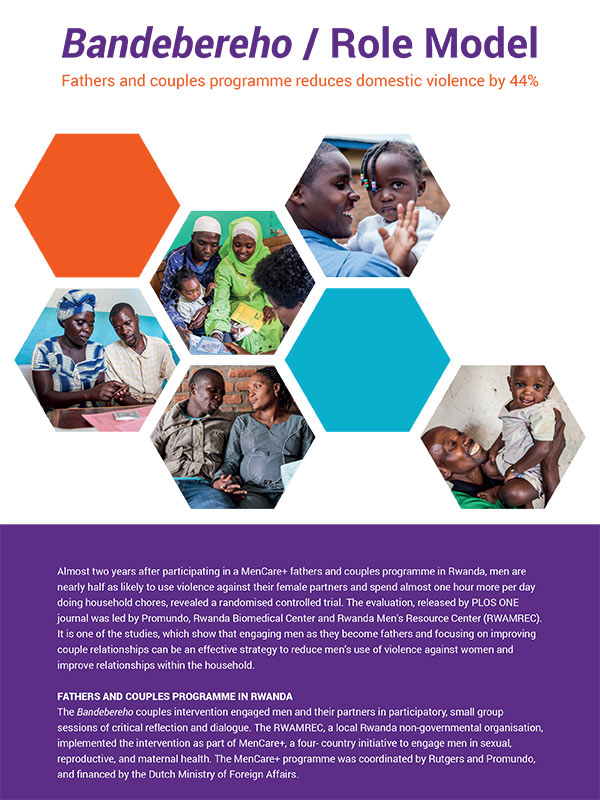
Bandebereho / Role Model
The MenCare+ programme in Rwanda reveals 40% less violence in men against their partners. The programme in Rwanda (known as Bandebereho, meaning ‘role model’ in Kinyarwanda) built the skills needed to have stronger, more equal and non-violent relationships among couples. Focusing on power and gender roles, the programme transformed ideas and norms about who does what and who has power in the household, as well as in intimate relations.
-
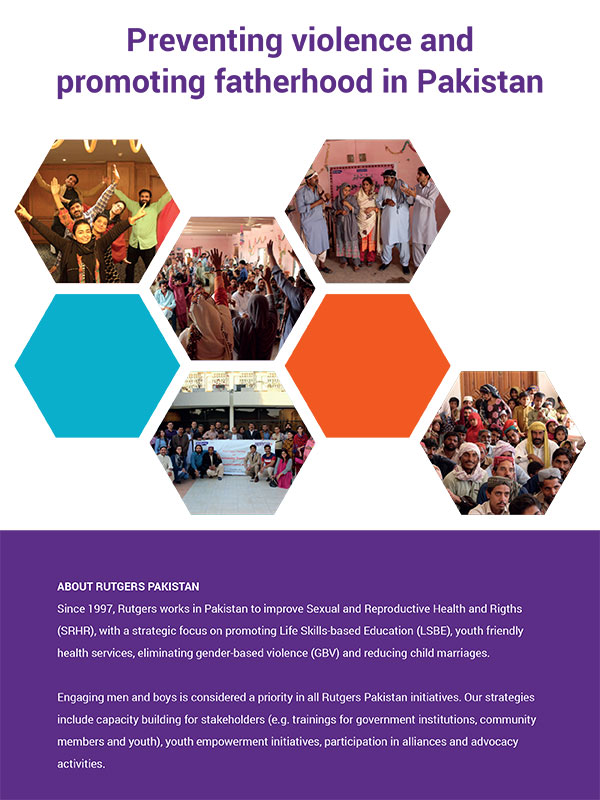
Preventing violence and promoting fatherhood in Pakistan
A campaign on fatherhood was conducted in Pakistan to encourage the transformation of negative gender norms to prevent GBV and to promote the rights of all women and girls. A set of community strategies were designed and implemented as part of this outreach, with a view to engaging multiple stakeholders in an effort to reduce violence and promote the key role of responsible fathers in society.
-
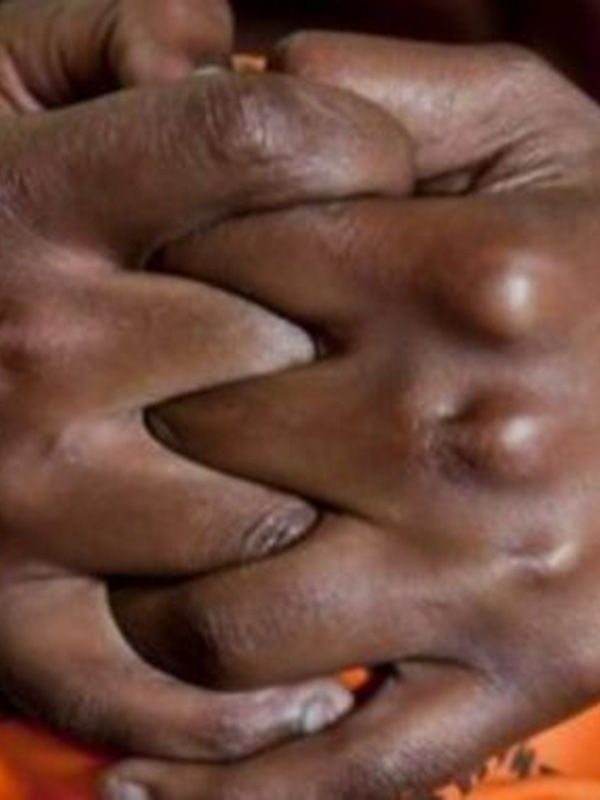
Survivors of prisoner rape tell their stories for the first time
Most of us have never heard about the horror of prisoner rape from someone who has survived it, and whose life was changed forever as a result. Most of us have not heard that much about prisoner rape at all.
These stories are told by three exceptionally brave men who have come forward to talk about surviving rape in South Africa’s prisons. Vincent*, Francois and Thabo* decided to help bring prisoner rape out of the shadows, and raise public awareness about this widespread violation of fundamental human rights. These are the first South African survivors of prisoner rape to tell their stories in this way.
The exact extent of rape in prison is unknown, but nearly half of all inmates surveyed by the Judicial Inspectorate for Correctional Services reported that sexual abuse happens “sometimes”, “often” or “very often”. Sexual violence in prisons is linked to gang violence and its power structures, and inmates who are sexually abused are targets for repeated abuse, and usually are victimized again and again.
Reports estimate that a quarter of the inmate population has HIV. Rape creates a high risk for HIV transmission between inmates, inmates and officials, and the communities to which inmates return.
In 2013 the Department of Correctional Services (DCS) adopted the Policy to Address the Sexual Abuse of Inmates In DCS facilities. This was a historic and important first step towards ending prisoner rape in South Africa, but little progress has been made on its implementation: much work lies ahead to ensure that inmates benefit from the policy. But it is possible. The majority of sexual abuses can be prevented.
With greater awareness, we can all play a role in this, and in supporting survivors of this violence. These stories are the first of their kind in South Africa, and underscore the urgent need for action.
Vincent: I Have A Purpose
Vincent was raped by two gang members in an overcrowded cell in a Western Cape remand detention facility. This was his very first sexual experience. Vincent asked for help from nurses, wardens, priests, social workers, and even a magistrate who all rejected him and told him to expect this treatment in prison. He only received medical attention three years after he was raped when he was sentenced, and learned he was HIV-positive. Vincent calls on the Department of Correctional Services to stop this from happening to others, and encourages survivors to speak up. Vincent feels stronger than before, and says “I know I have a purpose in this life”.
Francois: I’m A Survivor
Francois was violently raped twice in an Eastern Cape correctional centre, once at knife-point, and another on Valentine’s Day. He reported the rapes to the warders, but never received counseling or support. In despair, Francois attempted suicide. After being released, he sued the Department of Correctional Services, and after 10 years he accepted a settlement offer based on the promise that they would take action to stop inmates from being raped. When nothing changed, Francois decided to tell his story. Francois encourages other survivors to seek help and says “I know I can make it because I’m a survivor”.
Thabo: My Story, 21 Years Old
Thabo went to prison when he was just 21 years old and was repeatedly raped during the decade he spent behind bars. Thabo attempted suicide but was not successful, unlike three other inmates he knew who were raped then took their own lives. Experiencing serious trauma and shame, Thabo struggles to interact with people. He says he came back from prison with a lesson and an illness (HIV). The biggest weight he has carried is that nobody in his family knows what happened to him. He urges youth to stay away from crime so that “unlike me, you can reach your dreams”.
*Not their real names.
These stories were produced by Sonke Gender Justice, Just Detention International – SA, and NICRO, with funding from the Open Society Foundation for South Africa, the MAC AIDS Fund of the Tides Foundation, and the Ford Foundation. Thanks to Community Media for Development and Digital Storytelling South Africa for creating and editing the stories. Most of all, thank you to these courageous survivors.
-
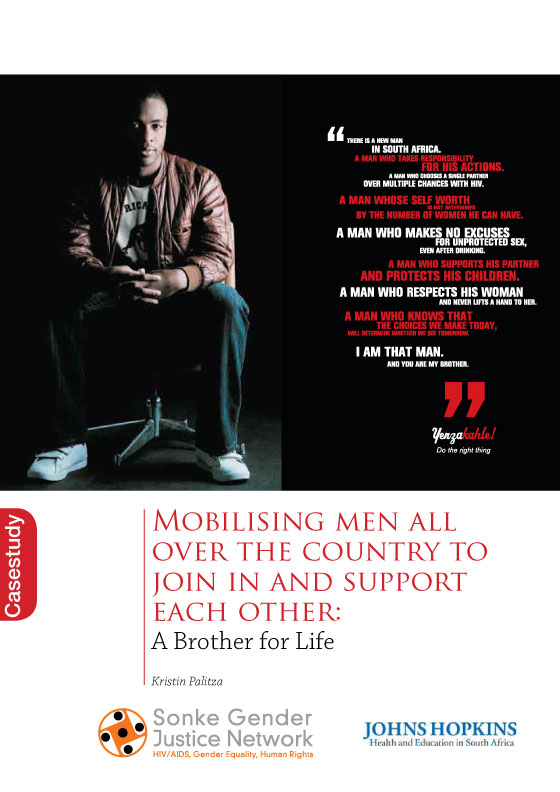
Mobilising Men All Over the Country to Join in and Support Each Other
South African women and girls face some of the highest levels of violence in the world. 1 in every 4 South African men admits to have raped a woman. Undeniably, it is men who commit the majority of acts of domestic and sexual violence. But many men and boys are strongly opposed to this violence and feel it has no place in a democratic South Africa. At the same time, there is a growing understanding among men that they have a critical role to play in addressing the gender norms, roles and relations underlying the HIV pandemic. Men start to recognise the vital role they can play in improving their own health and the health of their families.
A national men’s campaign, called Brothers for Life (BfL), is now encouraging them to stand up and show other men how to make the right choice. It mobilises men from all over the country to start working together to build a stronger and healthier society. It shows men how their choices can either help or harm their health – and how these choices can then help or harm their community and country.
The five-year campaign was launched by Johns Hopkins Health and Education in South Africa (JHHESA), Sonke Gender Justice (Sonke), the South African Department of Health (DoH), the South African National AIDS Council (SANAC) and other key stakeholders in the country.
This case study highlights the process and rollout of the BfL campaign and the various components comprising the campaign as a whole.
-
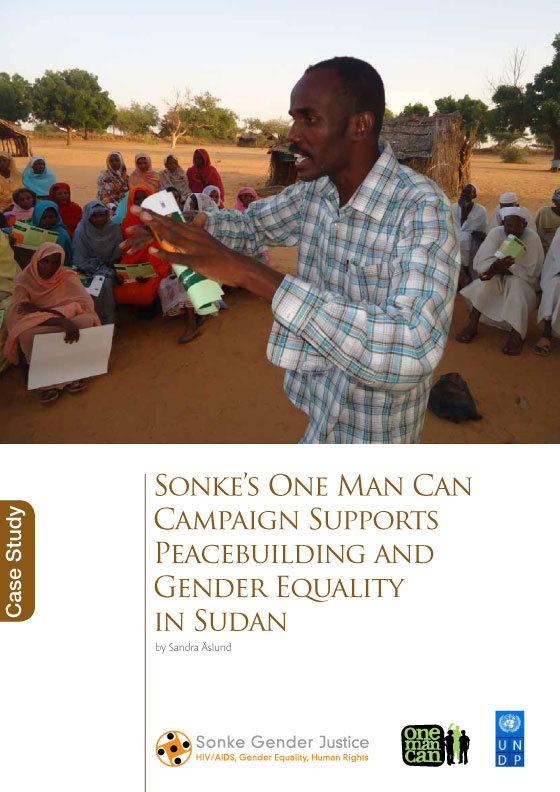
Sonke’s One Man Can Campaign Supports Peacebuilding and Gender Equality in Sudan
Sonke Gender Justice developed and launched the One Man Can (OMC) campaign and toolkit in 2006. The aim of the campaign is to support men and boys to advocate for gender equality and change those gender norms which drive gender-based violence (GBV) and the spread of HIV. This case study explores the impact of the OMC campaign in Sudan in terms of peacebuilding and promoting gender equality.
-
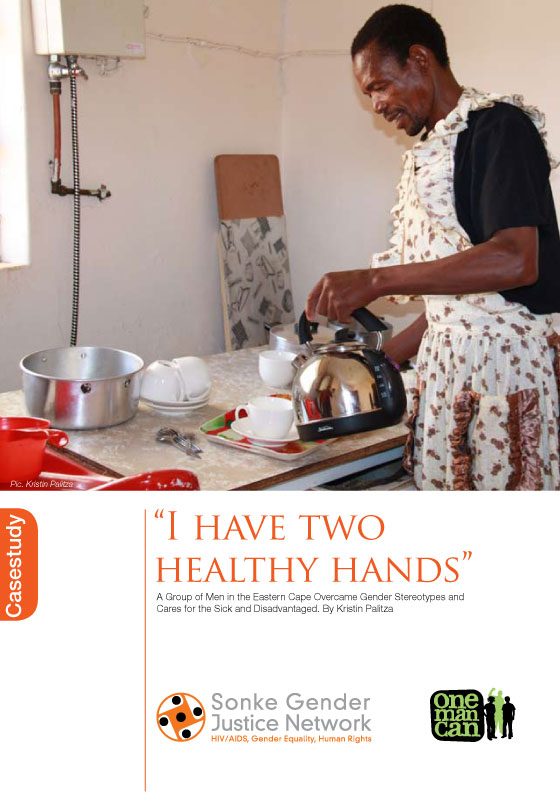
“I Have Two Healthy Hands”
A man in the kitchen makes for an unusual sight in most places, urban or rural, in South Africa and is often accompanied by snide comments, mocking laughter or a shaking of heads in disapproval – from men as well as from women. Patriarchy remains the widely accepted social norm and gender roles are clearly divided into how men are supposed to act and how women have to behave.
Caregiving – for children, the old or the ill – is generally regarded as a “woman’s job”. Men do not cook, clean, get involved in the upbringing of their children or take care of the sick. They are seen as financial providers of their families and as the heads of households who lay the law. In one rural area in the Eastern Cape, however, all this has started to change.
A group of nine men are working as home-based caregivers with the Siyakhanyisa HIV/AIDS support group in Qumbu, 60 kilometres outside of Mthatha, to make a positive contribution to the welfare of their community. Initially ridiculed for doing work reserved for women, they have quickly become role models and earned respect for their courage to do things differently and take responsibility for the goings-on in their villages.
The men decided to get actively involved in helping others after they learnt about gender stereotypes, understandings of manhood and fatherhood during workshops run by NGO Sonke Gender Justice earlier this year. They now care for people living with HIV, bathe the bedridden, counsel, educate about HIV prevention and transmission, facilitate access to anti-retroviral treatment, refer patients to social services and assist sick persons in writing their will. They also encourage community members to test for HIV, distribute condoms and help disadvantaged school children with their homework and cook for them. This case study highlights the story of these nine men.
-
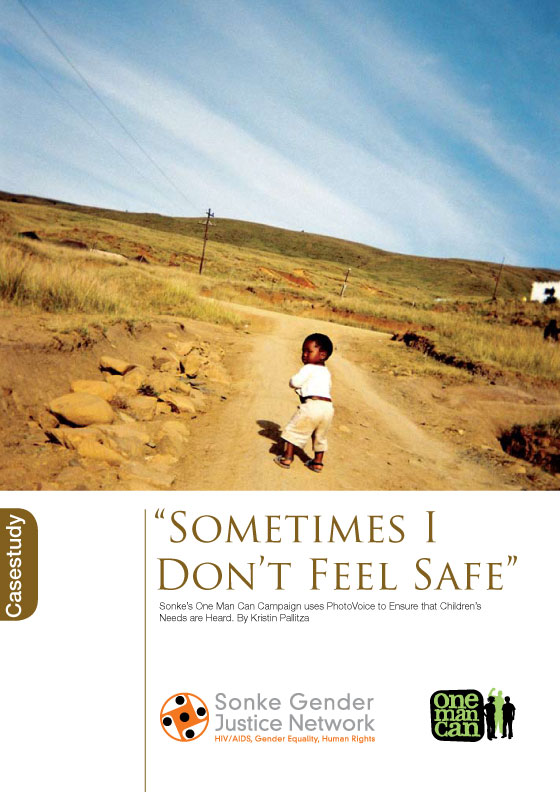
“Sometimes I Don’t Feel Safe”
With support from United Nations children’s fund UNICEF, Sonke launched its PhotoVoice project in June to make children’s voices heard through photography and writing. The first four-day workshop took place with 20 children at Mphathesitha High School in Nkandla and created a space for boys and girls to talk about their experiences, hopes and dreams and to mobilise adults, especially men, to help them meet their needs.
Children between the ages of 12 and 18 spoke about how they see themselves in their communities, their perceptions of adults, their understandings of gender and HIV/AIDS and their experiences with service delivery, with school and sometimes with illness, abuse and hunger. The process and outcomes of this workshop are discussed in this case study.
